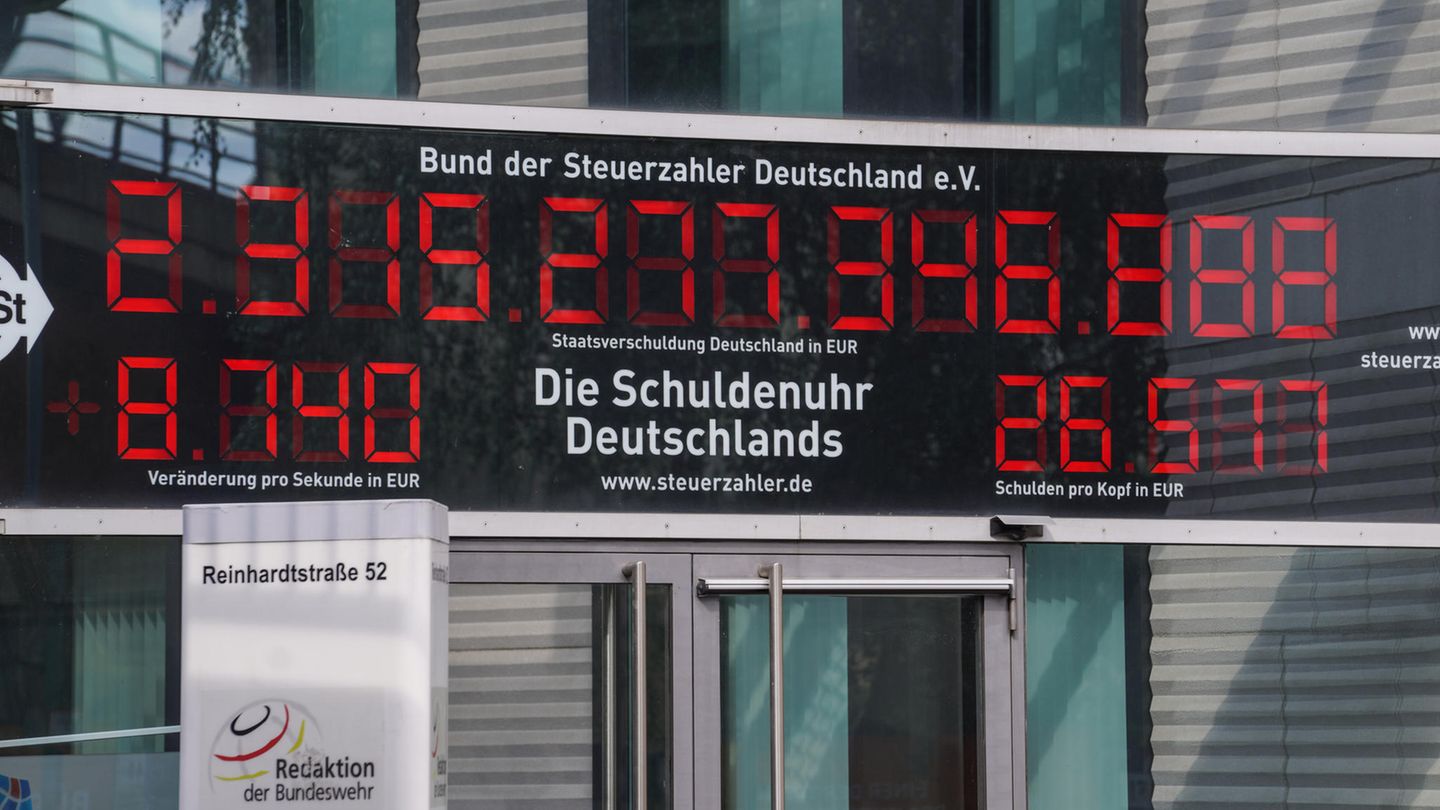Last year, ex-US President Donald Trump was one of the Germans’ worst nightmare. In 2021 they fear completely different problems, as the new study “Fear of Germans” shows.
After the Corona economic crisis, many Germans now fear a big end for their public finances – and for their own wallets. That is the number one concern this year in the “Fears of Germans” survey. 53 percent of those surveyed expressed great fear of higher taxes or reduced benefits due to Corona. Fears of inflation come in second: every second respondent fears rising costs of living. Just as many are uncomfortable about the EU debt.
R + V-Versicherung published the numbers on Thursday in Berlin. Since 1992 it was the 30th annual survey on the sensitivities of Germans in terms of politics, economy, the environment, family and health. According to the information, around 2,400 representatively selected people aged 14 and over were surveyed between May 25 and July 4. You should rate given topics on a scale between one (no fear at all) to seven (very fearful). The answers of levels five, six and seven were summarized and a ranking was determined from them.
Overall, according to the insurance company’s diagnosis, Germans are currently comparatively relaxed despite the pandemic and crises. The so-called fear index – an averaged value of all the fears asked – was 36 percent. For comparison: in 2016, after terrorist attacks and the refugee debate, a peak value of 52 was reached. “Obviously, people feel relatively safe at the moment,” said Brigitte Römstedt from R + V. One of the biggest fears from last year is gone: US President Donald Trump. The concern of getting infected with Corona is comparatively small: At 35 percent, this comes in 14th.
Climate change only ranks eleventh
Some political issues are also weighted differently in the survey than in the federal election campaign. For example migration: In politics, this is less of a focus than it was four years ago, but when it comes to fears, the “overstrain of the state by refugees” ranks fourth at 45 percent.
The mega-topic climate only came eighth in the annual survey with 41 percent in the form of fears of “natural disasters and extreme weather” – last year it was still fifth. The fear of climate change ranks eleven this time with 40 percent.
But the topic is a special case: the annual survey was ended before the flood disaster in North Rhine-Westphalia and Rhineland-Palatinate. Therefore, at the end of July, R + V had another 1000 people surveyed online – with a drastic change: 69 percent then expressed fear of natural disasters and extreme weather and 61 percent more generally of the consequences of climate change.
Political scientist Manfred Schmidt explained that – unlike in the election campaign – this was not the top issue from the start by saying that the costs of climate protection were now also becoming more visible. Now it is becoming clearer that “the citizens have to pay on a large scale,” said Schmidt.
Confidence in politics is not particularly high
Schmidt also placed the financial worries after the Corona economic crisis at the top: “The top fears testify to the realism of the respondents and the priority of their material interests.” The national debt had grown considerably during the crisis, and that required “considerable tax increases or significant cuts in public services,” said the political scientist who has been in charge of the fear study for years.
In the corona crisis, public debt grew by 14.4 percent or 273.8 billion euros in 2020 alone, according to the Federal Statistical Office. The inflation rate reached 3.9 percent in August, its highest level in many years. The SPD, the Greens and the Left are therefore actually talking about tax increases in the election campaign – but only for high earners. Union and FDP argue against it. All parties even promise relief for small and medium incomes. “The politicians in unison take a wide berth around this question,” commented Schmidt.
According to the study, Germans do not have too much confidence in their politicians anyway. On the school grade scale from one to six, they are rated 3.8 by the survey participants. Of those surveyed, 41 percent doubt that the politicians are up to their tasks. However, this value has already been considerably higher: four years ago it was 55 percent.
Jane Stock is a technology author, who has written for 24 Hours World. She writes about the latest in technology news and trends, and is always on the lookout for new and innovative ways to improve his audience’s experience.




